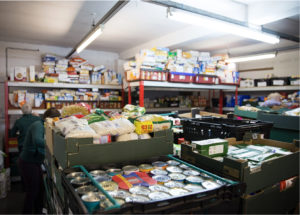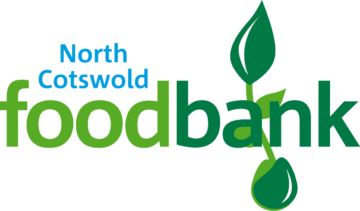Last week, we heard the grim news that foodbanks in our network gave out more than 2.1 million food parcels to people across the UK in the past year, an increase of 14% compared to before the pandemic (2019/2020), according to figures released by the Trussell Trust. Alarmingly, more than 830,000 parcels were provided for children, representing a 15% increase from 2019/2020. This is the first time that more than 2 million parcels have been handed out (outside of 2020/21, at the height of the pandemic) and is evidence that we are witnessing an accelerating crisis across the UK as the soaring rise in living costs and the cut to universal credit force an increasing number of people to turn to foodbanks.
In recent years the growth in the number of emergency 3-day food parcels distributed by North Cotswold Foodbank has been greater than the network overall: between April 2021 and March this year, we issued 764 food parcels, a 17.5% increase on 2019/2020 and a 7% increase on 2020/21. Interestingly the growth has come from food parcels for single people and couples and there has been a marked decline in food parcels for families, largely, we suspect, due to temporary government initiatives such as the increase in universal credit (which was reversed last October).
Kevin Carden, Project Manager for North Cotswold Foodbank, said: “As inflation continues to increase and rising bills are putting pressure on people across the country, we are all aware of the challenges ahead as more and more people are pushed deeper into financial hardship. Parents are skipping meals so they can feed their children. They are turning off essential appliances so they can afford internet access for their kids to do their homework. As a result, we expect that even more people will need to access our foodbank in the coming year.”
With the energy price cap rise just starting to bite, for most people at risk from financial hardship – who cannot work or work longer hours due to disability, caring responsibilities or mental health issues – there is very little protection ahead. The Trussell Trust says that, in the longer term, the government must introduce a commitment in the benefits system to ensure that everyone has enough money in their pockets to be prevented from falling into destitution – which means not being able to afford the essentials we all need to eat, stay warm and clean.

